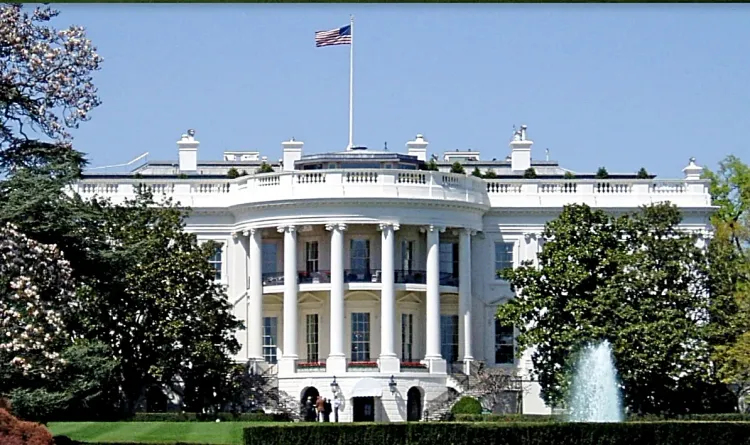Is the US Investigating Imported Aircraft for National Security Risks?

Synopsis
Key Takeaways
- Investigation initiated by the Trump administration regarding imported aircraft.
- Potential tariffs could impact the aerospace sector significantly.
- Public comment period lasts 21 days for community feedback.
- Section 232 gives the President authority to assess national security risks from imports.
- Legal challenges are rising against executive actions on energy policies.
Washington, May 10 (NationPress) The administration of US President Donald Trump is launching an investigation to assess whether imported commercial aircraft, jet engines, and their components might represent a national security risk to the United States, according to a notice from the Commerce Department. This initiative could potentially lead to new tariffs impacting the aerospace sector.
The Bureau of Industry and Security outlined in the notice published in the Federal Register that Commerce Secretary Howard Lutnick initiated this inquiry on May 1, invoking Section 232 of the Trade Expansion Act of 1962, as reported by the Yonhap news agency.
Under the provisions of Section 232, the President is empowered to modify imports if they are deemed a threat to national security. Trump has been utilizing tariffs as a means to enhance federal revenue, diminish the trade deficit, attract foreign investment, and bolster domestic manufacturing.
The department intends to gather public feedback for 21 days following the official notice publication.
Using Section 232, Trump has previously enacted a 25% tariff on automobiles and steel. His administration has also been exploring the national security implications of imports including copper, lumber, semiconductors, and pharmaceuticals, among other products.
In a separate development, a coalition of 15 US states is initiating a new lawsuit challenging President Donald Trump's executive order that declares a national energy emergency, with the aim of expediting fossil fuel development.
Washington State Attorney General Nick Brown announced this legal action on Friday during a press briefing. The 61-page lawsuit was filed in the US District Court for the Western District of Washington.
The lawsuit claims that Trump's order infringes upon the National Emergencies Act of 1976, which mandates that Presidents should only exercise emergency powers in actual emergencies, rather than for frivolous or partisan purposes.
The lawsuit states, "Prompted into action by the President's unfounded and illegal Executive Order, several federal agencies are now attempting to broadly apply these emergency protocols in situations that do not warrant them."









